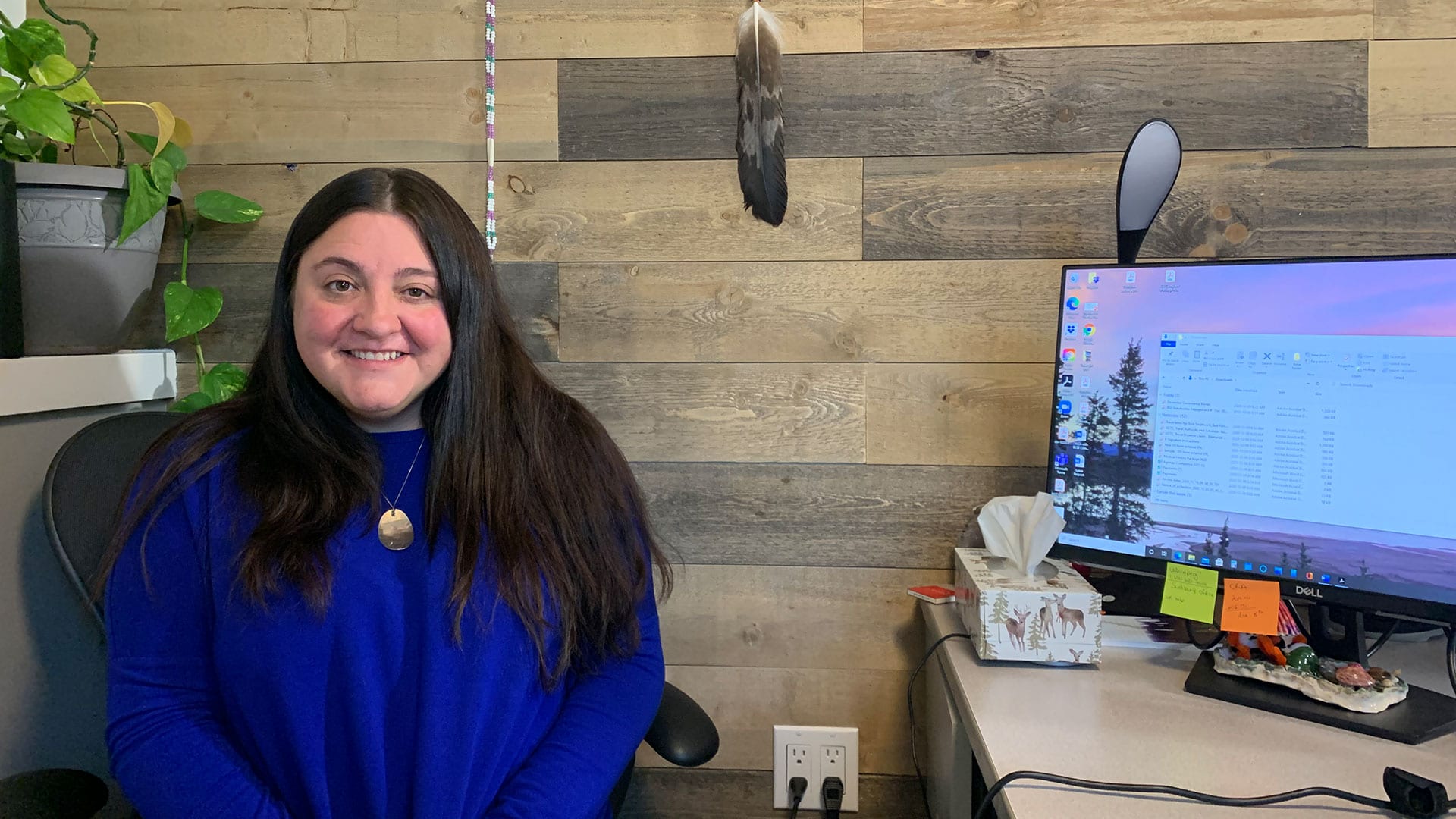Tosh Southwick’s pre-university education has always been a sore spot.
As a citizen of Kluane First Nation in Burwash Landing, Yukon, Southwick grew up in a community of 70 people and had limited educational opportunities.
After leaving her community to finish high school in Whitehorse and other parts of Canada, she was shocked to discover her Yukon courses weren’t eligible for her to enter university.
“When I was ready to go to post-secondary, I was broken,” she told APTN News.
“I found out I had to do two years of upgrading because the K-12 system failed me. I didn’t have the prerequisites that many had to get into university.”
Now, Southwick is using her own experiences to improve post-secondary education for northern Indigenous students.
In October, the federal government announced it invested $1 million dollars into a northern post-secondary education task force.
Led entirely by northerners, the 13 member task force will make recommendations on how to improve education outcomes in the North. One major focus of the task force will be enhancing education for northern Indigenous students.
Currently, northern post-secondary institutions are limited compared to the south. For instance, Arctic College in Nunavut only offers one bachelor’s program, while Dalhousie University in Nova Scotia offers over 100.
According to the task force’s website, members will lead virtual and public engagement sessions to provide recommendations to address gaps in post-secondary education across the North and Arctic.
Results of the sessions will be recorded in a final report with recommendations on how to improve education opportunities and outcomes in the North.

Southwick is one of those members.
After two difficult years of upgrading, she eventually earned a bachelor’s in psychology from the University of Victoria and completed a master’s in Education with the University of British Columbia.
For 12 years she worked at what is now known at Yukon University, first as its director of First Nations Initiatives, then as its associate vice president Indigenous Engagement and Reconciliation. She now works as a consultant.
“What I hope to bring to the task force is to be bold and courageous. To make some change so that the generations don’t have the same obstacles that we’ve got right now.”
Southwick said a problem still plaguing many northern communities is poor course offerings for high school students, which oftentimes results in them having to upgrade courses before they can attend university.
“Not every graduate graduates with the prerequisite they need to enter post-secondary,” she said.
“Science 12 is a great example. It’s really hard to get those science 12 classes in a number of really remote Indigenous communities. If you don’t have that science 12 you automatically have to get upgrading.”
Another area of interest for Southwick is incorporating Indigenous-based credentials in post-secondary.
“You can get a PhD in golf in Canada, but nowhere can you get a PhD in reading the water, tanning a moose hide, traditional medicines. That to me is a big symbol of the work we have to do with reconciliation.”
Force member Melanie Bennett is the executive director of the Yukon First Nation Education Directorate, which helps First Nations employ more control over the education of Indigenous students.
As a member of Tr’ondek Hwech’in First Nation in Dawson City, a small community of 1,375, Bennett likewise faced difficulty when she attended university in the south.
“That remoteness and connection to your family is full-stop when you have to leave. Excitement when you first go, then loneliness when you realize you’re out there on your own. All of that would go away if we had those accesses right in the community.”
Bennett said the fact so many students are required to get upgrading is “frustrating,” and questions why First Nations are often left covering the cost when the department of education is responsible.
“If our students are going to post-secondary and requiring the upgrading, that’s a failure of the education system that led them there.”
Instead of focusing on students’ weaknesses, Bennett plans on recommending more opportunities that centers on their strengths, like land-based learning and Indigenous language acquisition.
“Post-secondary isn’t the end-all-be-all, there’s different measures of success for Indigenous people.”
Task force recommendations will be released later next year.









